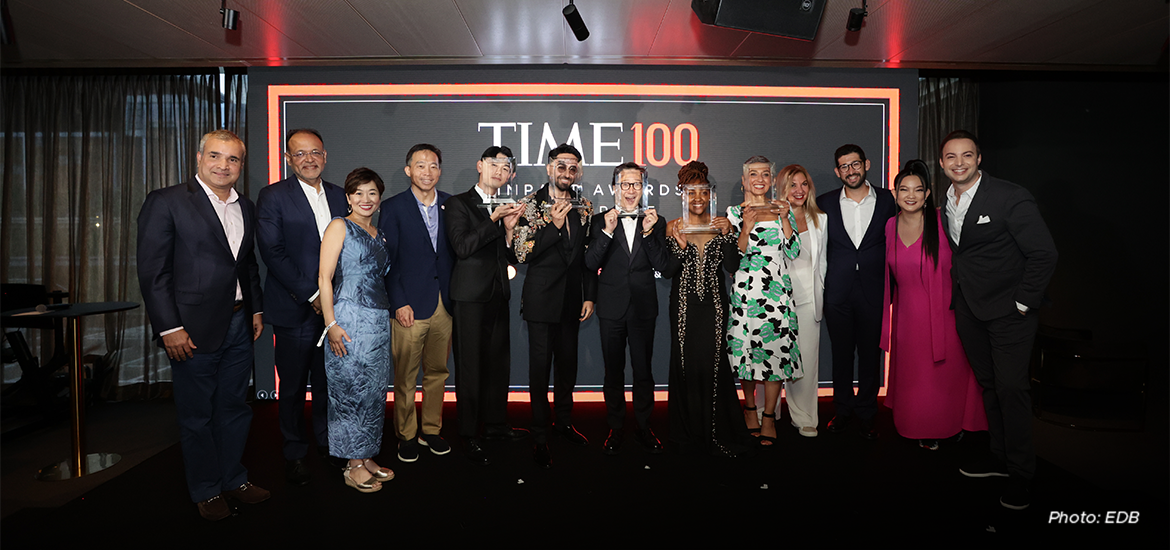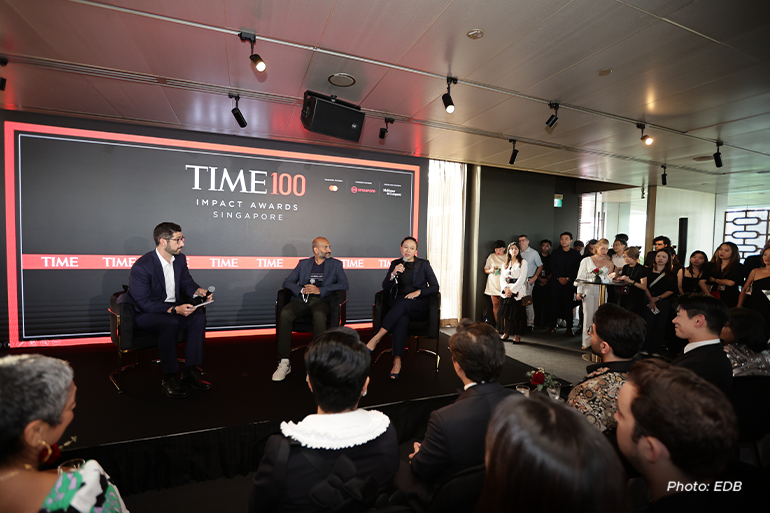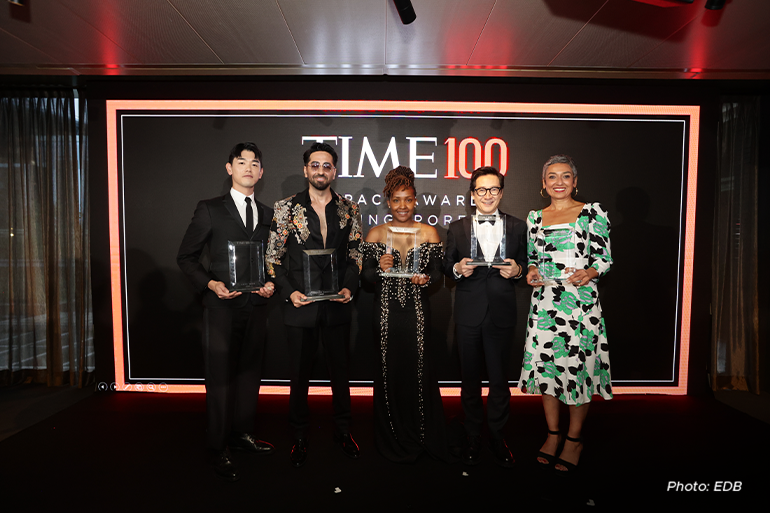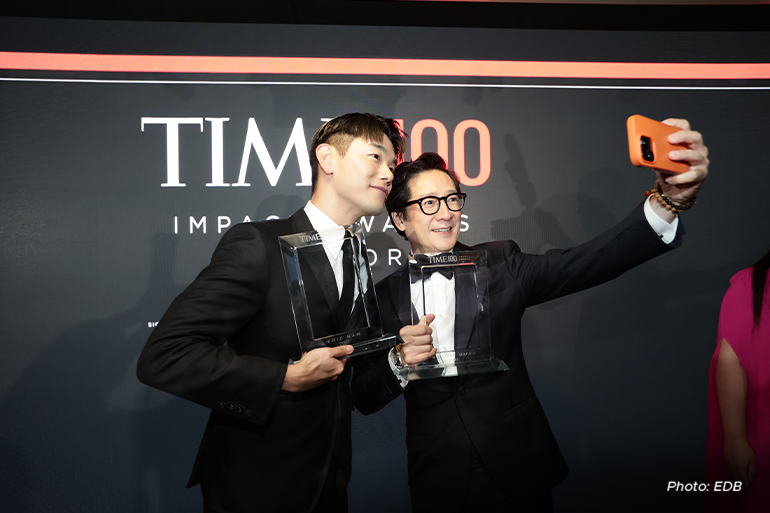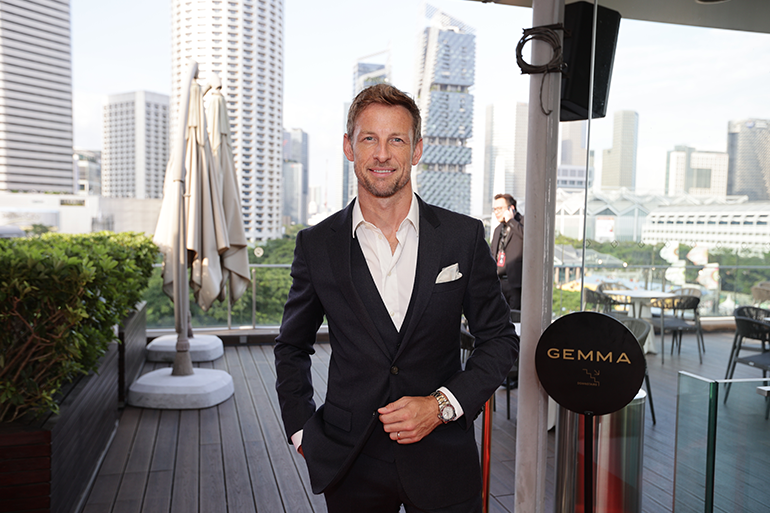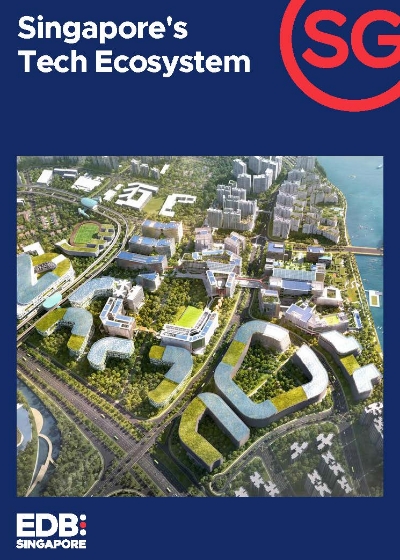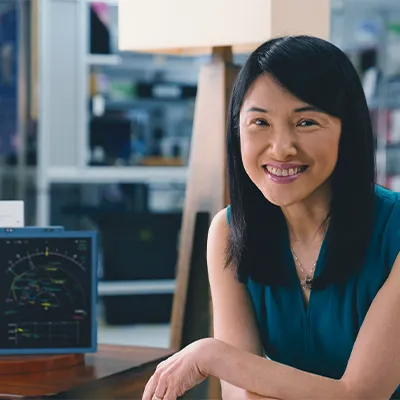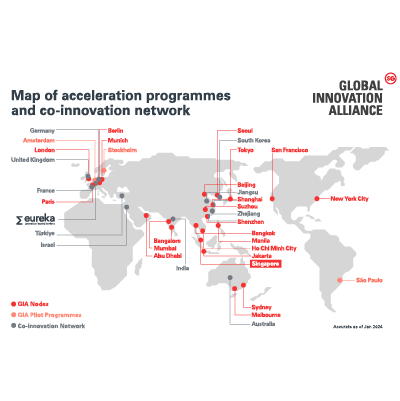Can businesses balance their pursuit of growth alongside efforts to drive change and benefit communities? Architect Prasoon Kumar founded his startup in Singapore to achieve both objectives. The CEO of BillionBricks, which started out as a non-profit and is now a for-profit social enterprise, is on a mission to tackle the “wicked problem” of the global housing crisis while simultaneously protecting the environment. With their partner Engie, a global energy company, BillionBricks designs and builds net-zero, affordable solar homes using the newest energy technologies.
Kumar is among the growing number of entrepreneurs and corporates in Singapore that are seeking to use technology and innovation to address the challenges of our time. Their activities span digital inclusion, better patient care, creating a sustainable circular economy and ensuring greater food security, among others.
At the recent TIME100 Leadership Forum and Impact Awards in Singapore, corporate leaders and advocates for change spoke about how business can be a force for good. Here are four takeaways:
